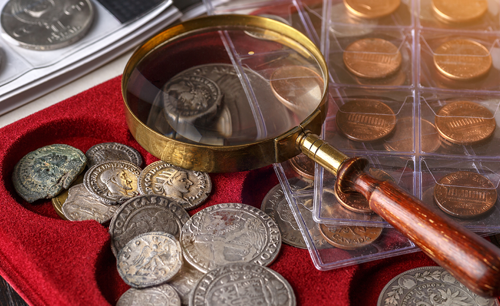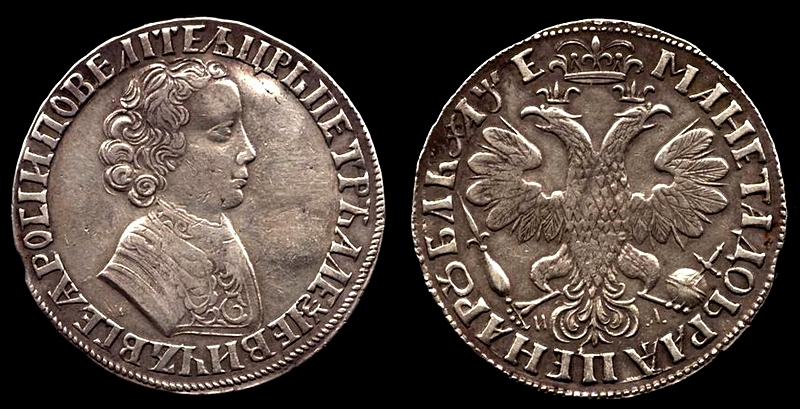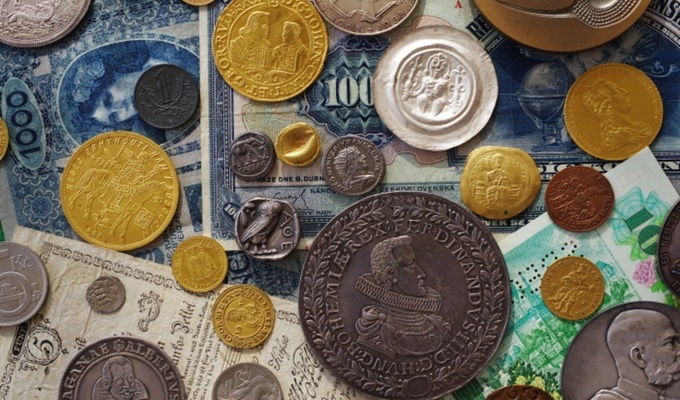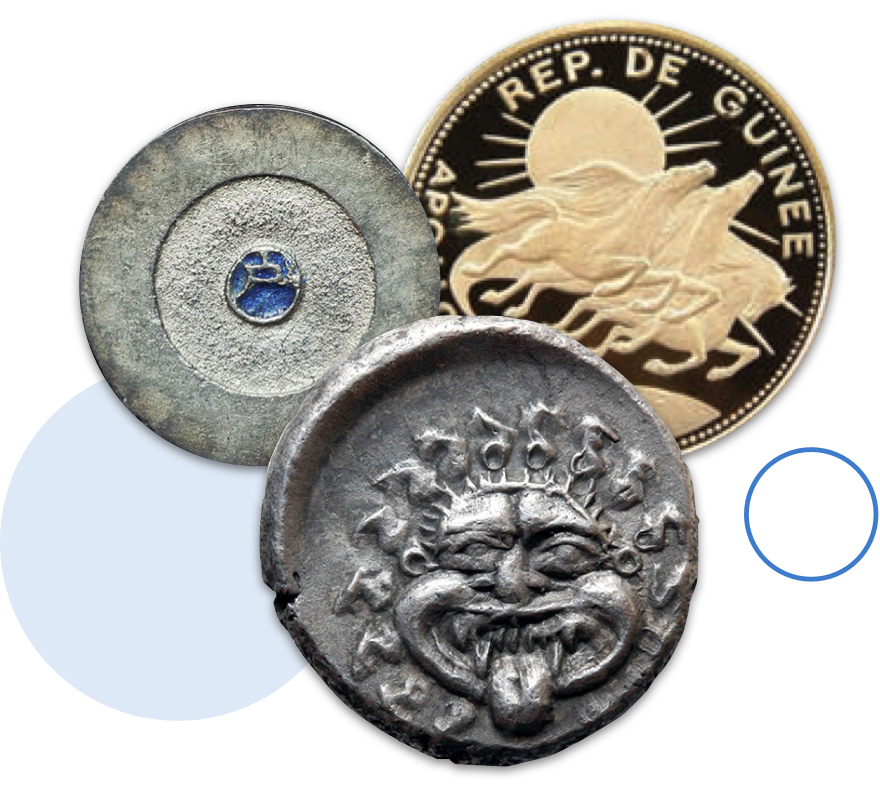Good News For Deciding On Shekel And Pound
Good News For Deciding On Shekel And Pound
Blog Article
What Can I Do With A Database To Research Numismatics In Relation To Regional And Global Associations?
Here's a structured approach to conducting such research:Database Selection: Choose databases that are specialized in numismatic associations, like the websites of major numismatic societies, such as the American Numismatic Association (ANA) or the International Numismatic Association (INC), or regional organizations, such as the Australian Numismatic Society. A structured approach is provided to help you conduct this type of research. Furthermore, academic databases and repositories such as JSTOR offer access to scholarly papers and conference proceedings.
Define Research Focus: Specify your research objectives. Do you have a desire to exploring the past and current the activities of global numismatic organizations or conferences, regional collaborations, publications, or particular subjects in numismatics discussed by these organizations? Make sure you know what your goal is to help guide your search.
Search Strategy: Use keywords like "numismatic associations,"" "global numismatics,"" "regional societies for numismatics," and also include specific names of associations or geographical regions if relevant. Sort results by advanced search features. This includes filtering by date, document type like conference papers and newsletters from associations, as well as by geographic scope.
Data collection: Get details on the members' mission, their history and publications of international and regional associations. Find information about past or forthcoming conferences, research collaborations and workshops. Find databases that contain information about association members, leaders and contact details.
Analysis: Examine the data in order to determine the role and impact of both regional and global numismatic associations. Examine how these organizations help to advance the field of numismatics, encourage international collaborations and propagate research through conferences and publications.
Cross-Referencing - Check the information you've gathered by cross-referencing data from various databases and sources. Compare activities and initiatives from different associations to get an overview of the global and local developments in numismatics.
Documentation: Ensure that you record your research findings in a systematic manner, including the sources used and the methods employed. Keep track of the details such as the databases you searched on and the search terms you employed, and the degree to which the source you used was for your study.
Keep yourself updated: Numismatics groups are constantly evolving. These include new publications, collaborative projects and conferences. For the latest updates in the field of numismatics in both regions, be sure to keep an eye on the association's websites and databases.
Databases can be used to be efficient using these methods. This method will allow for a deeper analysis of the organization's structure, the scholarly efforts, and the collaborative efforts that have helped shape the numismatics industry both on a global and regional scale. Follow the top rated dinar for more advice including banknote album, banknote appraisal, coin grading, coin mold, banknote display, coin identification, coin album, coin identification, antique coins, coin certification and more.
What Can I Do To Find Out More About Numismatics Particularly In Relation To Shows And Exhibitions Events By Utilizing A Numismatics Database?
To research the subject of numismatics with respect to exhibitions and show events, databases are used. These databases archive information about numismatic shows or exhibitions as well as conferences. Here's a structured approach to conduct such research:Database Selection: Choose databases that are specialized in numismatic shows and events. Examples include the websites of some of the largest numismatic organizations like the American Numismatic Association.
Define Research Focus: Specify your research objectives. Are you interested in exploring future numismatic or past exhibitions Are you interested in conferences focusing on Numismatics? Coin shows in the region? Thematic shows or educational activities. Find out what you are looking for to guide your research.
Search Strategy: Use keywords like "numismatic shows," "coin exhibitions," and "numismatic events" to locate appropriate results. Include names of events, locations or topics If you'd like. Use advanced search options to filter results by the date, type of event (such as conferences, exhibitions) and geographical region.
Access data on recent and forthcoming numismatic exhibitions and events. Collect information such as event dates, venues, organizers, themes or specific collections that are featured, as well as participating exhibitors, and related publications or catalogs. Browse databases that provide virtual tours and access to exhibit materials.
Analyze: Analyze your data to discover the topics, educational goals and prevailing trends in the numismatic events and shows. Evaluation: Examine the role of the various exhibitions and shows to increasing public awareness about numismatics.
Cross-Referencing: Confirm your findings by cross-referencing information through multiple databases, event listings as well as official sites. This will guarantee completeness and precision when conducting your research. Additionally, you will gain a comprehensive view of the numismatic exhibits.
Documentation: Document your findings, noting which sources you consulted as well as the methods used. Keep track of the specifics of the databases you used as well as the search terms that you searched with, and the way each source is related to your research.
Keep updated. Numismatic events change frequently, with new shows, conferences and exhibitions. Updates from numismatic associations organizers, event planners, as well as specialized database are the best ways to stay informed about upcoming events.
By following these steps, you will be able to allow you to make use of databases efficiently to research numismatics related to shows and exhibitions. This approach allows you to discover the variety, educational benefits, and scholarly contributions that numismatic shows worldwide make. Have a look at the most popular read this post here about austrian coins for website info including gold coins, coin, proof coins, real, banknote, banknote artist, coin production, coin album, platinum, coin club and more.
How Can I Research Numismatics In Relation To Collectors With A Database?
Conducting research on numismatics and collectors requires databases that focus on collecting interests, collections numismatic societies, as well as collector profiles. This is a structured way to do such research. Database Selection: Select databases that are specifically focused on the field of numismatics, collector profiles, and numismatic societies. Collector forums online, websites of numismatic organizations (such as the American Numismatic Association), databases for collectors, and specialized research platforms are all examples.
Define Research Focus: Specify your research objectives. Are you looking to learn more about the collecting interests of specific collectors, the development of noteworthy collections, trends in numismatic collections or the social and historical motives for collecting practices? Determine the goal of your search.
Utilize terms that define collectors, such as "numismatic" or "collector profiles" Add particular names for collectors when needed. Advanced search is a way to sort results by date or collector specialties such as ancient coins, paper currency or exonumia.
Data collection: Get information on collectors like their biographies and interests in collecting. Additionally, you can access information regarding notable acquisitions and contributions to numismatic research. Find out about the history and dispersal of noteworthy collections. This includes auction results as well as catalog entries.
Analysis: Examine data to comprehend the motives and factors that drive the numismatic collection. Discover how collectors influence market demand, impact collecting trends and help in the conservation and dissemination of knowledge about numismatics through publications, exhibitions or educational initiatives.
Cross-Referencing. Check what you've found by comparing it to information from other databases, numismatic books and auction archives. This ensures accuracy and completeness in your research, providing insight into the many ways that collectors contribute to the numismatic world.
Documentation: Document your findings, noting the sources you used and the methods that were employed. Define the databases used, search words, and the significance the sources have to your needs.
Stay up-to-date the latest trends in collecting and trends change in time. It is possible to stay informed by following discussions on collector forums and publications of numismatic organizations in addition to specialized databases.
You can make use of databases to analyze numismatics from the collection of collectors through these simple steps. This technique allows a thorough investigation of the motives, interests and contributions of collectors in the world of numismatics. Additionally, it provides insights into the cultural and historical dimensions of collecting. Read the top rated forint for blog tips including coin mintmark, banknote value, currency society, rial, commemorative coins, antique coins, rand, design, banknote design, czech coins and more.
What Can I Do To Use An Online Database To Find Numismatics In Historical Archives?
In order to conduct research on numismatics in relation to historical archives it is essential to use databases which focus on documents from archives or numismatic objects as well as records of transactions. A methodological approach is available to help you conduct this type of research. They include national archives websites and platforms for museum archives as well as numismatic research platforms, and library catalogs.
Define Research Focus: Specify your research objectives. You might be interested in learning about the history of collections, numismatics or coins, or the history of transactions. Set out your objectives to help you in your study.
Search Strategy: Make use of keywords like "numismatic archives," "historical collection of coins," "archival records on coinage," and include specific historical periods, geographical regions or numismatic themes, when appropriate. Advanced search is a way to filter the results by dates and types of documents (manuscripts or catalog entries, correspondence, and so on.).
Data collection: Obtain data from numismatic archives and collections. Find out information about inventory lists of collections as well as correspondence between collectors or institutions, auction catalogs, historical photos of coins, as well as museum accession records.
Analysis: Analyze the data to discover the historical contexts and narratives that surround the numismatic artifacts. Examine the role of coins in commerce and trade. Their role in the realm of culture, politics, and economic exchanges. Also, how numismatic discoveries can help us comprehend historical events.
Cross-Referencing: Confirm your findings by cross-referencing information across multiple databases, archives catalogs, collections of museums, and publications from the past. This will guarantee accuracy and the completeness of your study. This also provides an extensive overview of the history of numismatics, as documented in archives from the past.
Documentation: Documentation is crucial. Use sources to cite and record the method you employed. Note the details of the databases you accessed as well as the search terms that you used, and how each source connects to your research.
Stay informed Historical archives are currently being documented, while numismatic finds continue to be studied. Recent news from museum collections, archival repositories, and scholarly journals will keep you informed of the latest numismatic discoveries and information.
If you follow these guidelines, you can effectively utilize databases to study the numismatics of historical archives. This approach enables you to explore the historical contexts and influence of numismatic objects providing valuable insight into the development of coins as well as their significance throughout history. Read the best bank info for website tips including coin forum, denomination, coin history, krona, krona, dime, coin errors, half-dollar, coin club, coin die and more.
How Do I Search A Database In Numismatics For Networking Opportunities?
If you are researching numismatics for networking opportunities platforms and databases are employed to facilitate connections made between collectors. Dealers, scholars, and enthusiasts in the field of numismatics. This is a method that can be structured to do such research. Selecting a Database: Choose databases and platforms which are specialized in the field of numismatic networks. For instance, numismatic society websites and online forums (such as CoinTalk, Reddit's CoinTalk, and r/Coins), social media groups (on Facebook, LinkedIn) and professional networks.
Definition of Research Focus: Specify your objectives for networking. Are you looking to connect with collectors and share knowledge or engage dealers to purchase or sell objects, work with researchers for research projects or participate in numismatic conferences and events? Find out what you are looking for to guide your research.
Search Strategy: Use keywords like "numismatic network", "coin collectors forum", "numismatic social networks" and geographic areas when relevant. Use search features within the platforms to find relevant events, groups and forums.
Data Collection: Get details on the opportunities for networking within the community of numismatics. Data collection: Get information on networking opportunities within the numismatic community.
Review your data and identify the relevant channels and opportunities for networking. Evaluation: Examine the engagement levels in forums and groups. Also, evaluate the range of participants (collectors/dealers, scholars) and the frequent updates and discussions, and potential for collaboration between academic and professional.
Cross-Referencing: Confirm your findings by cross-referencing data across various databases, numismatic society websites, social media groups, and professional networks. This will help you identify opportunities for networking in different regions and platforms.
Engage: Be active in your interactions with the networks you choose. Participate in discussions and pose questions. Share insights. Establish connections with other dealers, collectors and scholars to broaden your circle and exchange valuable information about numismatics.
Documentation: Document your network activities in detail, noting the platforms used as well as the group members, meetings attended, as well as contacts made. Track the opportunities you explore and the results from your efforts to network.
Following these steps will allow you to explore opportunities for networking and numismatics. By using this approach you will be able to expand your personal and professional network in the field of numismatics. You will be able to facilitate interactions, exchanges of knowledge and take part in activities that increase your understanding. View the top rated coin value hints for website tips including banknote storage, czech coins, gold, currency exhibition, antique coins, coin design, numismatic value, coin artist, banknote, coin artist and more.
